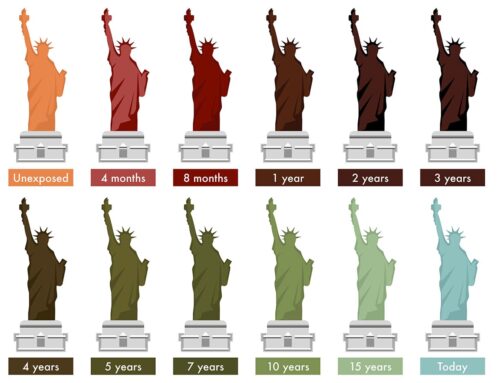This second part of the article on supply chain responsibility in IPC documents deals with a few other IPC documents: IPC/J-STD-001, IPC-7711/7721, IPC-6011 and IPC/J-STD 001GS.
IPC/J-STD-001 is the standard for process engineering in PCB assembly. The train of thought in this document is process control. The standard also addresses materials and tools that may be used in the various soldering processes. Cleanliness and applicable tests are discussed. This standard describes supply chain responsibility as follows:
1.9 Requirements Flowdown
When this Standard is contractually required, the applicable requirements of this Standard (including product class, see 1.3) shall [D1D2D3] be imposed on all applicable subcontracts, assembly drawing(s), documentation and purchase orders. Unless otherwise specified, the requirements of this Standard are not imposed on the procurement of commercial-off-the-shelf (COTS or catalog) assemblies or subassemblies.
When a part is adequately defined by a specification, then the requirements of this Standard should be imposed on the Manufacturer of that part only when necessary to meet end-item requirements. When it is unclear where flowdown should stop, it is the responsibility of the Manufacturer to establish that determination with the User.
When an assembly, e.g., daughterboard, is procured, that assembly should meet the requirements of this Standard. The connections from the procured assembly to the manufactured assembly shall [D1D2D3] meet the requirements of this Standard.
If the assembly is manufactured by the same Manufacturer, the solder requirements are as stated in the contract for the entire assembly.
The design and workmanship of COTS items should be evaluated and modified as required to ensure the end-item meets contract performance requirements. Modifications to COTS items shall [D1D2D3] meet the applicable requirements of this Standard.
In IPC-7711/7721, in which rework, repair and modification processes are described, the following can be read:
1.2 Purpose
This document prescribes the procedural requirements, tools, materials and methods to be used in the rework, repair, modification, overhaul or restoration of electronic products. Although this document is based in large part on the Product Class definitions used in IPC documents such as J-STD-001 or IPC-A-610, this document should be considered applicable to any type of electronic equipment. When invoked by contract as the controlling document for the rework, repair, modification, overhaul or restoration of products, the requirements flowdown apply.
In this case there is not much depth and detail, but references are made, and the manufacturer himself remains responsible when he contracts repairs out to sub-contractors.
When we consider printed circuit boards and when IPC-6011 applies, we find the following:
4.1.2 Contract Services
The supplier may contract any portion of his manufacturing operation to a contract service. If requested by the user, the supplier shall state what portions of manufacturing operation are contracted to a contract service. The supplier assumes all responsibility that the contract service has demonstrated the ability to meet the applicable requirements of the specification.
Things get trickier when you are a manufacturer of products that will be used in aerospace and when your customer has specified the IPC/J-STD 001GS standard. This means that you will be held responsible for the solderability of COTS (commercial off-the-shelf) products – so any products you procured ready-made – that you incorporate in your end product.
What does this mean for you as a producer and/or user of the IPC-standards and documents?
If you are contractually bound to one or more of the above IPC documents, and also when you are ISO 9.001 or ISO 14.001 certified, you are responsible for the quality of products and services that have been supplied by your own suppliers and service providers. If you contract out part of your activities to a service provider, you do remain responsible for what your sub-contractor does for your end product. Your customers can and will point out your responsibility in case of damage and claims.
It is therefore important to be aware of the impact of supply chain responsibility when your customers specify IPC standards in contracts. Our consultants are happy to give you more information about this. All your staff members in charge of quality assurance, customer contacts and procurement have to keep abreast of the correct application of the latest IPC standards – and not just the above ones. All the standards should be part and parcel of a quality control system. And all sub-contractors should be very carefully vetted. After all, you are the one who is responsible for what they supply to you.
Do not wait until you are faced with a claim for damages, but take precautions now. See to it that you know the small print* in the IPC documents, so that you are well-prepared and you can prevent conflicts with your customers.
If the articles on supply chain responsibility have led to questions and you think you need assistance, please do not hesitate to call us. You can reach us on telephone number +31 45 570 3333 or at e-mail address support@piektraining.com. When we inform you there are no strings attached.






